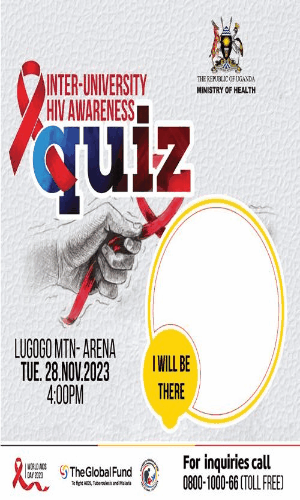INTERVIEW
A Ugandan researcher, Dr. Sabastian Rwengabo, has called for a National Strategy on Complex Public Health Emergencies (CPHEs). Citing the previous experience of devastating pandemics, and the recent experiences of HIV/AIDS, Ebola, Marburg, and SARS-CoV-1 in Asia, Dr. Rwengabo argues that countries need well-coordinated, capacitated, multi-level teams and interventions in case of public health emergencies. He states that unlike Covid-19, which might sneak into Uganda through border posts, other CPHEs may erupt from anywhere. “Remote places may be severely affected if there are no lowest-level teams to attend to emergencies, contain their impacts in specific locales, and seek higher-level assistance,” he argues in a situation analysis paper authored with support from Konrad Adenauer Stiftung (KAS) in May 2020. Dr. Rwengabo is a Political Scientist and Independent International Consultant in Fragility and Resilience Assessments, Political Economy Analyses, Institutional Capacity Building, Leadership Training, and Governance.
ResearchFinds Editor ARINAITWE RUGYENDO sat him down to unpack his model in the wake of recent climate change-related disasters in East and Western Uganda.
ResearchFinds: What is your model talking about?
Rwengabo: My model is called The National Strategy on Complex Public Health Emergencies (CPHEs). Covid-19 revealed the need to alter Uganda’s approach to public health governance; not only by expecting future pandemics but by developing a National CPHE Strategy based on the recommendations I make.
ResearchFinds: Which ones are they?
Rwengabo: One: The Ministry of Health, working with the Department of Disaster Preparedness in the Office of the Prime Minister and the National Security Council, should draw from the provisions of the national health and disaster preparedness and management policies to develop a National Strategy on CPHEs.
Two: Create multi-level teams constituting the operational nodes of the strategy, and ensure that the National Strategy on CPHEs is multi-level, technically competent, given the specific mandate, well facilitated, functional, and operates outside of the local political squabbles.
Three: Undertake consultations and start online multi-stakeholder consultations on the development and operationalization of the National Strategy on CPHEs.
Four: Legislatively operationalize the national health policy and disaster preparedness and management policy, and ensure that provisions are made for the establishment and operationalization of the National Strategy on CPHEs.
Five: From Covid-19 lessons, make central to the National Strategy on CPHEs the idea that Uganda’s health systems and structures are strengthened to world-class standards to forestall future dependence on foreign health services and supplies.
Six: Drawing on the current personnel involved in the national response to Covid-19, measures should be put in place to identify competently, committed, patriotic, and motivated Ugandans who can serve as members of multi-level teams implementing the National Strategy on CPHEs.
ResearchFinds: Don’t we see this coordination every time a disaster strikes?
Rwengabo: It is very minimal and appears not pre-planned. A good example is the Karamoja food crisis. You saw how prepared the country was. The Covid-19 pandemic in particular, and epidemics and pandemics in general, threaten health security and correspondingly national security, resilience, and sustainability of ongoing development processes and programs. Understanding the country’s preparedness, responses, and state-society relations as they are affected by the pandemic would contribute to erasing societal anxiety, state-society suspicions, and apathy.
ResearchFinds: What is your model going to achieve?
Rwengabo: The CPHE strategy emphasizes the State’s central role in developing and operationalizing a crisis response architecture. The model shows that priority needs to be placed on preparedness, response, and post-CPHE socioeconomic recovery, a novel finding that underscores the process approach to pandemics management. This process approach has the potential to cushion society against the immediate and long-term impacts of CPHEs, hence the need to alter Uganda’s approach to public health and health security governance.
ResearchFinds: What practical options does your research avail for policymakers at MOH and OPM for example?
Rwengabo: I suggest creating, capacitating, and retaining multi-level structures for responding to CPHE outbreaks. This is the best way of cushioning society against possible rural-based (otherwise peripheral) outbreaks and transmissions, for example.
Secondly, CPHEs, when integrated into the national security outlook, acquire the requisite priority to ensure they do not get out of hand: what if Covid-19 had broken out first in some rural/peripheral enclave in Uganda – would it have received as much policy attention as it did without the foreign-media and foreign-institutional and diplomatic dramatization?
Thirdly, Health-Sector self-sustenance is as important as security. This is because pandemics threaten our strategic resources – the people.
ResearchFinds: What were the findings from your research?
Rwengabo: One: Despite a relatively effective response to the Covid-19 pandemic, Uganda’s Policy, Legislative, and Strategic frameworks on CPHEs are scattered, incoherent, and less well known to the national citizenry.
Two: The State has a central role in the management of infectious diseases and public health in general.
Three: Developing and operationalizing a CPHE Strategy is a national obligation of state and non-state actors.
Four: The multi-stakeholder Strategy needs to prioritize preparedness, response, and post-CPHE socioeconomic recovery to cushion society against immediate and long-term impacts of CPHEs.
Five: Covid-19 has revealed the need to alter Uganda’s approach to public health governance, specifically the de-militarisation of public health emergencies, and the capacitation of civilian state-health institutions.
ResearchFinds: What justifies your model?
Rwengabo: I will answer this with questions. What had Uganda done to operationalize the disaster management policy of 2010 which predicted the COVID-19 pandemic? What cushions were in place by the time Covid-19 hit us, and why are we facing strenuous socioeconomic aftereffects? Is it sensible to conflate disasters with pandemics and epidemics? What are the linkages between health security strategies and cushions, and national security strategies and cautions? How does government tap into the ideas and proposals of researchers to design and operationalize the national-safety cushions and cautions? These are the issues that need serious attention before another disaster or pandemic strikes.

Rugyendo is the Founder and Editor-in-Chief of ResearchFinds News. An accomplished journalist with a rich background in the media industry in Uganda. With over two decades of experience, Rugyendo has held various roles including cab reporter, Bureau Chief, Managing Editor, and Digital Media Editor at renowned publications such as Daily Monitor and Red Pepper. He has since moved on to found Research Finds News. Throughout his career, he has demonstrated a commitment to delivering high-quality journalism and staying at the forefront of media trends.
In addition to his journalistic pursuits, Rugyendo is currently pursuing a Ph.D. in Journalism and Communication at Makerere University. He has been recognized for his outstanding leadership and commitment to social change as a Desmond Tutu Fellow and Crans Montana New Leader. Rugyendo also serves as the Chairman of Young Engineers Uganda and Uganda Premier League, showcasing his dedication to promoting excellence and growth in various fields.
With a passion for driving innovation and pushing boundaries in media, Rugyendo continues to make significant contributions to the industry. His vast experience, academic pursuits, and leadership roles make him a respected figure in the Ugandan media landscape.
Minister of Health, @JaneRuth_Aceng presents #Uganda recommendations at the Climate and Health Ministerial meeting at #COP28 pic.twitter.com/W8Phhq17yH
— Ministry of Health- Uganda (@MinofHealthUG) December 4, 2023

















